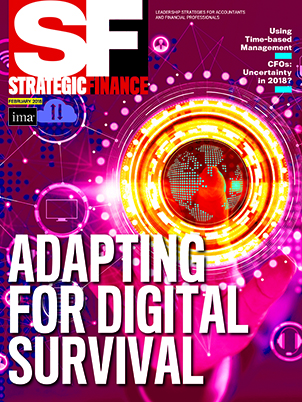Have you ever developed a great strategic plan and taken actions, only to end up with less-than-desirable results? Even the best plans can yield unsatisfactory results if the organization’s culture doesn’t support the business plan. Culture can make or break any organization. From the largest multinational company to the smallest team or individual, culture is a key to success.
In their book Corporate Culture and Performance, John Kotter and James Heskett describe culture as “an interdependent set of values and ways of behaving that are common in a community and that tend to perpetuate themselves, sometimes over long periods of time.” They studied a number of organizations and found that certain kinds of corporate cultures help long-term economic performance while others undermine it. What makes for a successful culture?
There are five universal values that are instrumental to successful organizations: personal accountability, teamwork and collaboration, a mind-set for change, integrity and ethical values, and a value-focused orientation. These values can be implemented by anyone from top management to team leaders. Strong leaders will develop these values in themselves and others.
PERSONAL ACCOUNTABILITY
A culture of accountability is potentially the most important value for any results-producing organization. It’s based on an attitude of personal accountability, where individuals have a “make it happen” mind-set. They believe that success or failure comes from individual actions—not external forces—and devote their energy to overcoming obstacles rather than wasting energy complaining, blaming others, or wishing things were different. When a culture lacks accountability, there exists an entitlement mentality and a tendency for people to see themselves as victims. Leaders can build accountability by recognizing this behavior and redirecting these attitudes by asking, “What more can we do to get results?”TEAMWORK AND COLLABORATION
Teamwork is working together cooperatively in an environment of respect and drawing on all the talent and resources available to achieve a common goal. Each team member brings abilities that together generate better, more efficient, and effective results. When a team functions well, there’s an atmosphere of energy and creativity, which builds a sense of purpose. One barrier to a teamwork mentality is the myth that success is driven by hard work, perseverance, and individual effort. This mind-set is encouraged by corporate cultures that promote and reward individualism. An individual who embraces this win-or-lose mentality will also display a judgmental attitude, hoard resources and information, focus on personal goals, and resist giving or accepting assistance. These are all contrary to true collaboration. Leaders can build a culture of cooperation by fostering commitment to their team members and objectives.CHANGE MIND-SET
Individuals and organization that readily adapt to change will succeed over those that don’t. A culture of change involves embracing the reality that change occurs. It implies an openness to new business innovations as well as to personal growth and development. When people are resistant to change, they can exhibit a fatalistic attitude, victim mentality, and a lack of commitment to their job. They adopt a judgmental attitude that criticizes and finds fault without solutions. Leaders need to develop a mind-set that looks beyond the flaws of an idea to see the possibilities. This involves creating an environment where people feel free to generate and share new ideas, try new things, and fail occasionally without punishment. Leaders can develop this attribute by being good role models, demonstrating constructive feedback, setting up ground rules for meetings, and seeking team input into behaviors that stimulate new ideas.INTEGRITY AND ETHICAL VALUES
Integrity is the congruence between words and actions, and it forms the foundation for trust between people, companies, stakeholders, and society. Ethics can be broadly defined as the moral standards that individuals and organizations use to guide decisions and behaviors. Ethics implies that, when making decisions, people look beyond their desires to the greater good. The IMA® Statement of Ethical Professional Practice identifies four overarching ethical principles: honesty, fairness, objectivity, and responsibility. These are essential values for any organization. Leaders have a critical role in forming the ethical values of their team or organization. When making decisions, strong ethical leaders look beyond their personal benefit to the greater good of the organization and take the right actions. Subordinates observe these behaviors and attitudes and gain an understanding of the prevailing culture. Strong ethical leadership builds a strong ethical culture.VALUE-FOCUSED ORIENTATION
It isn’t enough that organizations have an action-oriented culture that stresses accountability. Organizations must be focused on taking actions that create value for their customers. Successful cultures are value-focused. Individuals with this focus will understand the “why” of their actions. Leaders can promote a big-picture mentality by first adopting it themselves and then encouraging their team to do the same. Planning is essential and needs to include why the action is needed and how valuable it is to the organization. The selection of actions should be driven by their importance to the organization. Ultimately, the team must stay focused on the critical, value-creation activities. When these values are part of the organizational culture, success will follow more easily.
February 2018



